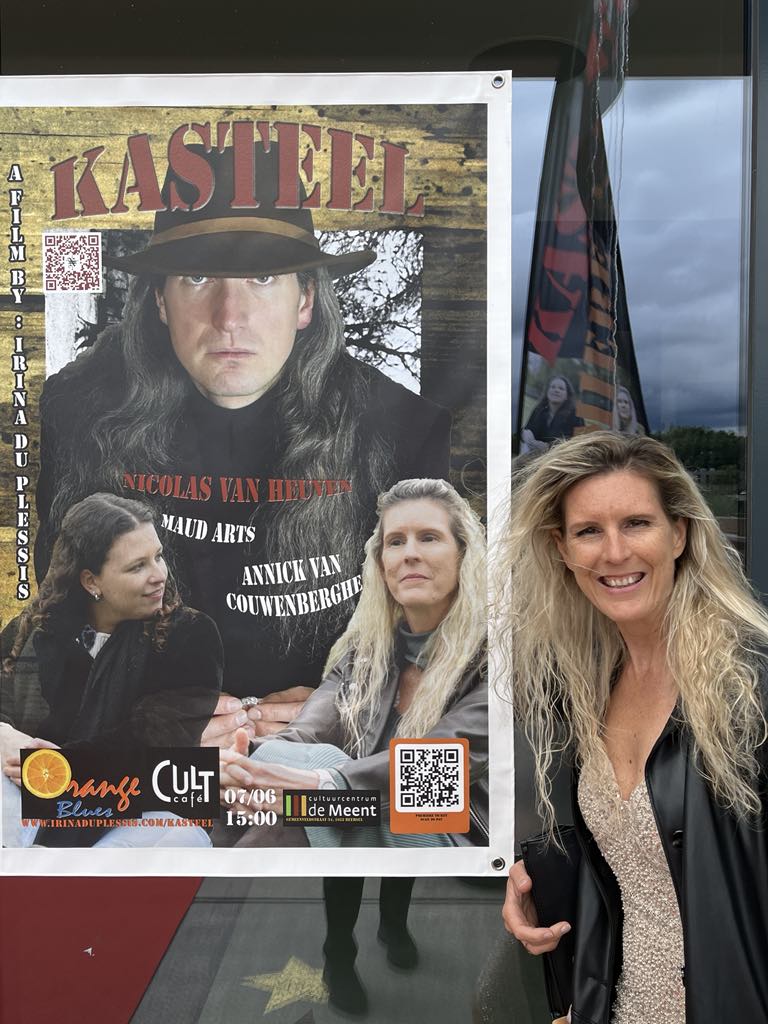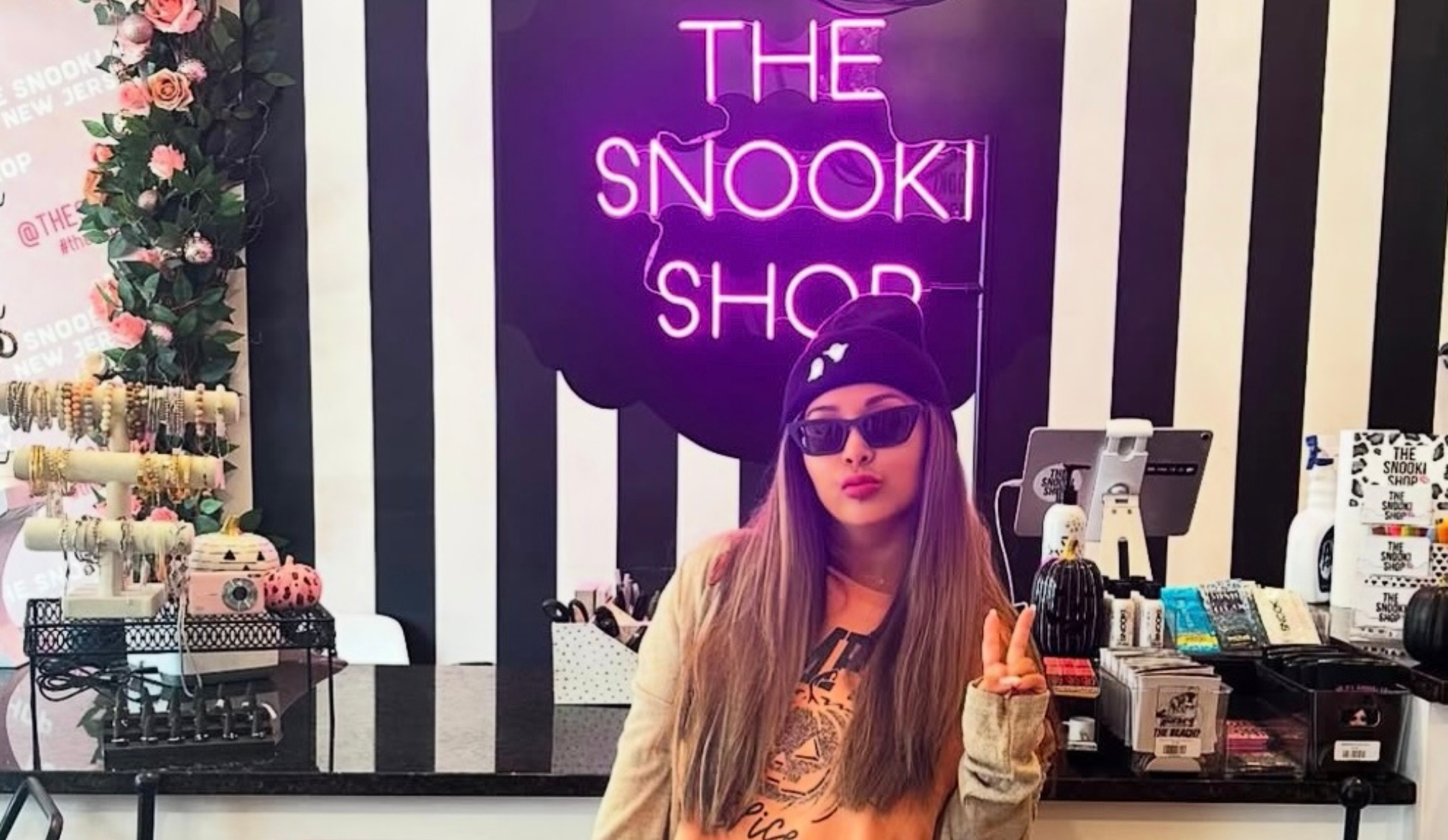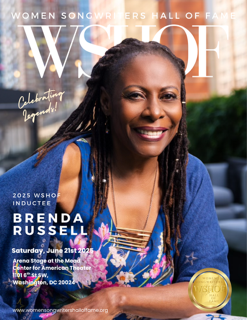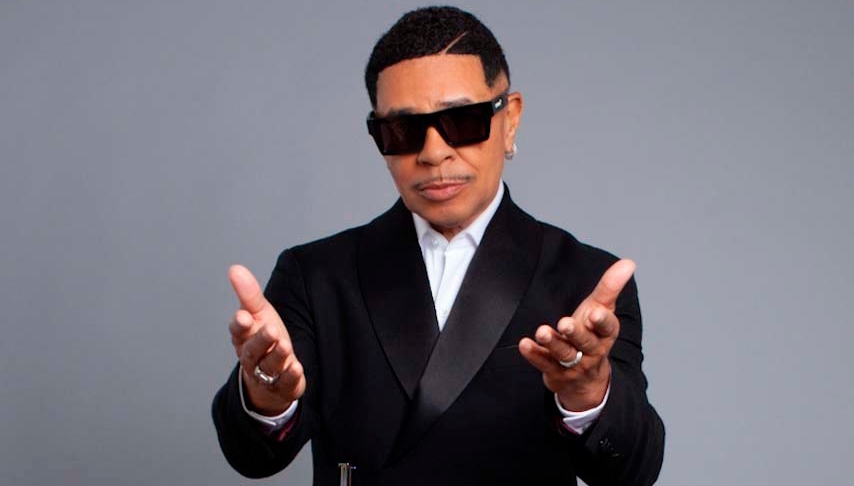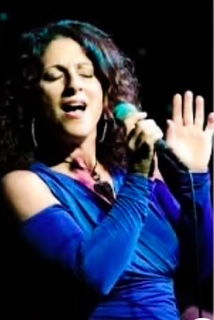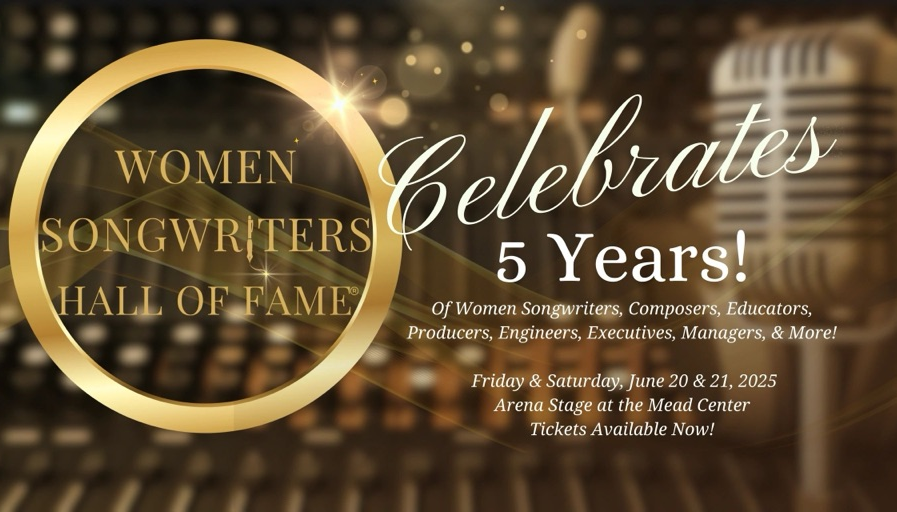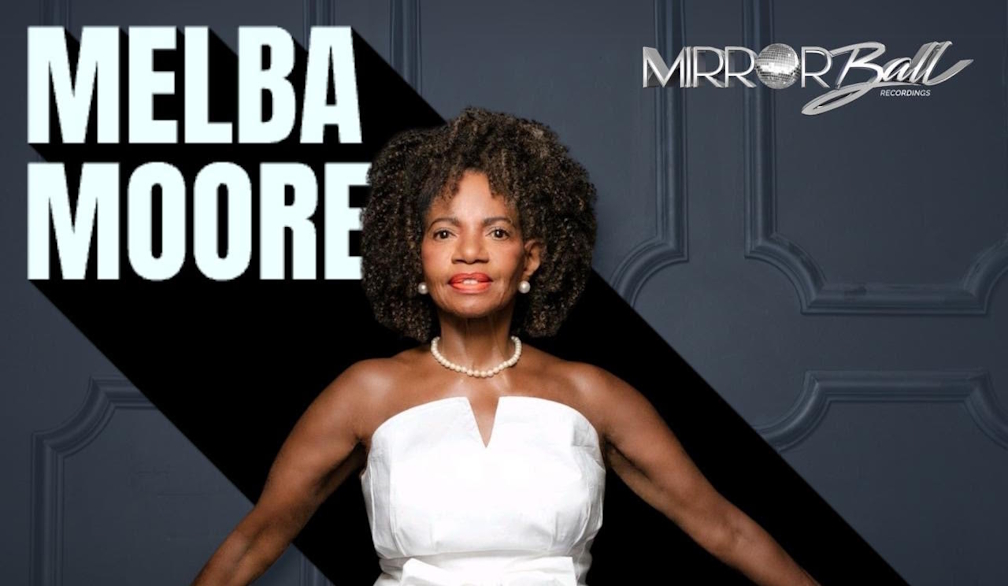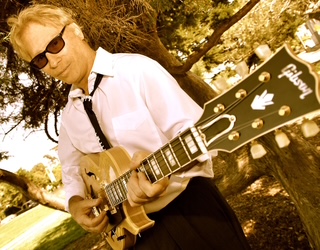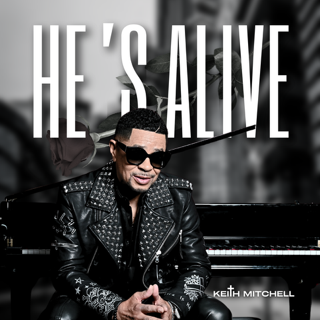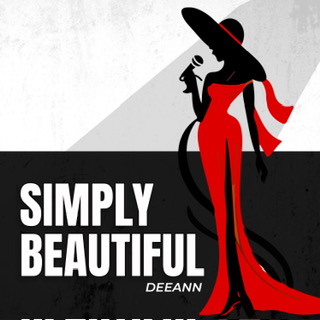News Company asked some Music Industry “Insiders” their thoughts on the current state and future of “Real Music”
- Written by NewsCo

Real Music, to me, means music created by real instruments where you can hear the bow go across the fiddle or cello. Where you can hear an imperfect note here and there. Real music is where all the players are in one place at the same time and feed off of one another to create a magic that cannot be defined. That is real music to me.
Does Real Music still exist? Yes it does - and it lives in major studios around the world. The session players in Nashville are second to none. Like the Lovin’ Spoonful said in their song “Nashville Cats” “Been playin’ since they were babies “
I will not use anything but real music and real players no computer can replace real music.
-Stephen Wrench, Recording Artist and President of Musik and Film ((https://musikandfilm.com)

A close friend and I periodically revisit a question people have been revisiting for centuries: “What is art?” I used to fight hard to find a tether I could hang on to in such conversations, but as I’ve gotten older, I’ve become more comfortable accepting the way the rope slips through my fingers.
“Let’s say a pig rolls around in the mud, and then on a canvas,” Lisa might say. “And you like the pattern it makes. Is it art?”
That one stopped me as I considered the Jackson Pollock print on my wall.
“And let’s say you don’t know it was done by a pig,” she parries before I have time to thrust. “Does your reaction depend on knowing that?”
Artist. Intent. Skill. Sound criteria, I think. And yet…
The conversation doesn’t get any easier with music. I’ve heard a subway train emit three tones in sequence as it strained away from the platform that, to me, sounded exactly like the first three notes of “Bali Ha’i.” This happened every morning on the red line out of 72nd Street when I lived in New York. Same trains, same intervals, rhythm, duration. Was it music? Of course not. There was no artist, no intent, no skill.
But then what am I to do about John Cage? Dude really was a musician. And yet, I’d rather listen to “Subway South Pacific” than “4:33” any day of the week. Sure there was an artist, but he didn’t do anything. There was intent, but the intent was to not do anything. And I don’t think listening to people squirm and cough is an actual skill.
But - and here comes the bias - you can find artist, intent, and skill in, say, satanic-thrash-math-metal. And nope, nope, nope, it’s not “real” music to me. I prefer certain kinds of artists, certain kinds of intent, certain kinds of skill. Gimme a happy hard swinger by Basie, or a tear-besotted torch song by Julie London, a soaring composition by Pat Metheny or a melancholy melody from Melody Gardot.
I suppose that makes me an elitist (mine is good, yours is bad), or a subjectivist (it’s ALL good!). I’m not particularly comfortable with either. Somehow, I think the question of whether there’s such a thing as “real” music imposes our limitations on a limitless art. It reminds me of the silent dialogue I have in my head whenever I read some artist or critic assert that “the role of all art is to provoke and challenge.” “Says you,” says me in my mind. “Your art is too small then. Sure, art can make me angry our doubtful or incited. But so can the news. What about art that comforts? Teases? Amuses, soothes, or simply beautifies the moment? Is that not also art?”
“The problem is not that art needs defining,” I continue, encouraged by the silent concession of my non-existent adversary. “The problem is that you’re subverting it to your personal agenda. You want to provoke, so you claim art is on your side. But art is bigger than any one agenda. Not everyone has to agree in order for it to be valid, useful or meaningful.”
Or as my friend Jim likes to reply, when someone says, “I don’t get it,” in response to some work of modern art, “Maybe there’s no ‘it’ to ‘get’.”
In the end, I do think there’s such a thing as “real” music, but I’m a lot less inclined to try to convince you that mine is it. For me, real music, like beauty in any form, is where you find it. And when I find it, I don’t see the point in questioning it. I prefer to simply enjoy it. Even if it was made by a pig.
-John Armato, Creative Strategist and Musician whose Debut Album The Drummer Loves Ballads is set for release in 2021.

I think if you ask anyone, and particularly any musician, what “real music” is to them, they’ll say – as I emphatically do – that it’s the music they grew up on, the artists, albums and songs that touched their lives, moved their souls and inspired them to dare to dream. Because I grew up in the 70’s in what many consider a golden age of rock and R&B music, real music to me has always meant a good solid rhythm track with a meaningful story sung by powerful, emotional vocals with lyrics that reflect what people of that time are going through. The classic rock and Motown/soul music I grew up on and played professionally as a drummer most of my life are the roots of who I am, and will always be real music to me.
But even before I got into rock, I grew up listening to classic country music, country rock then Elvis and Jerry Lee Lewis and other artists my parents listened to. In junior high and high school, I started listening to everyone from Ronnie Montrose and Cream to Elton John, Led Zeppelin and Deep Purple. Just as the Beatles and Stones credited guitar Icon Chuck Berry (who I would end up playing drums with for many major shows) as a foundation for a lot of their music, these 70s legends were my influences when I started writing songs and playing drums professionally.
With the possible exception of Elton and Deep Purple, I wasn’t raised with a lot of keyboard music, although ironically I later ended up playing drums for Head East, a big classic rock keyboard band. I feel like I was raised on three piece rock bands– drums, bass, guitar and a vocalist. I was especially enamored of guitars and great singers – and those long jams by guys like Jimi Hendrix and Grand Funk. Later I got into the Stones and Aerosmith. I became a drummer but never framed myself after anybody, yet people have told me my style reflected those of greats like Ginger Baker, Corky Laing (Mountain) and John Bonham. I developed my own style jamming with solid bassists and killer guitarists. Those were my heart and soul, along with the rhythms of Motown music. I was blessed to be inspired by a huge melting pot of artists and styles.
All of this “real music” was with me every time I played with Chuck Berry as his go-to special show and traveling drummer for many years. One of my most cherished memories is a moment on a tour bus, when Chuck was listening to a blues tune, turned to him and said, “This is how I want us to play the blues – because when it’s time to rock, you rock me. No, I mean, you REALLY rock me!” My ability to do that is due in no small part to growing up playing drums during that incredible era.
Those influences were also with me over the years, as I split my time between high profile gigs with Chuck – including a gig in front of 66,000 people at Busch Stadium and performing “Johnny B. Goode” for a live worldwide broadcast from NASA’s Jet Propulsion Lab in Pasadena CA for The Voyager project – and recording and touring with Head East, including performances with Sammy Hagar, Boston, ZZ Top, REO Speedwagon, Heart, Cheap Trick and many others.
When people ask me if I think “real music” as I define it still exists, I happily point to the DRT Global Top 50 Rock Airplay chart the week a few months back when my band American Greed – featuring me on drums, Matt Arana on lead guitar and frontman Dave Farver – were riding high on that same chart with our song “Together.” The song reached #1 on both the World Indie Music Chart, Euro Indie Music Chart and #12 on the DRT Global Top 50 Rock Airplay Chart, sharing space with the likes of Foo Fighters and AC/DC, whose “Shot in the Dark” was #1 that week.
I wrote the song about the pain of being separated from loved ones and longing for closeness, and am proud of how it became something of a universal anthem capturing our collective anxieties and hope during the pandemic era. Being #1 on two international charts, scoring over 358,000 Spotify streams and close to 535,000 streams on YouTube for its video were all exciting achievements. Yet here was something even more special for me personally having a song I wrote on a chart with rock legends whose success in 2020 proves that real rock and roll – the kind I have always considered “real music” because I grew up on it and became a musician because of it – is still influential.
The pop charts these days all seem to be about pop, R&B and rap, and I often hear people talking about how rock is dying out. It may not be as dominant in the Top 40 as it was when I was young, but no one will convince me that it – or the great influence of classic and modern rock – is going away anytime soon. The bands, artists and songs in the Grammy rock categories may not sound like the classic rock I heard during my formative years, but every genre and art form is entitled to evolve, and I’m always hopeful the style of rock I love best will return to its former dominance.
But by no means – even as output has dropped off a bit and live gigs and touring stopped due to the pandemic – are we losing it. “Real music” as I see it may not be as prevalent as it once was, but it’s still there – and I’m eternally hopeful that it hangs in there and stays relevant so young musicians and emerging artists who love to rock will understand its greatness and why it has forever changed the world.
-Michael Mesey, Chart-Topping Founder, Drummer and Songwriter for Indie Rock Band American Greed

I love music. I know a lot of people of a certain age might say that today’s pop isn’t “real music,” but I think they’re wrong. Music, in my experience, is energy. It moves, it flows and it makes you feel something. It’s a collection a rhythmic patterns and relationships between tones that is sometimes paired with language (lyrics).
“Real music” is all around us and takes so many different forms. It’s an essential part of all cultures in every corner of the globe. It can be the mellow instrumental music in a waiting room, the hit song on the radio, or the hypnotic lull of a drum circle. It can be a 6th grade band concert, or an electronic beat created on a phone app. To me, real music is any pattern of sounds sustained long enough to evoke some sort of energetic resonance or reaction within the listener.
What we prefer, or think of as “good,” is a different story altogether, and is totally individualized. It’s a matter of personal taste, as diverse as we are as humans. Isn’t that how it should be?
Does “real music” still exist? Of course! I think that music always has and will exist, even beyond our physical existence on this beautiful planet. Music, in its pure form, was never of this world in the first place. And that it flows through me as an artist is an honor.
-Angela Predhomme, Artist and Songwriter of Mellow, Soulful, Feel-Good Music that Inspires the World.(www.AngelaPredhomme.com)

To me, music isn’t just created to be heard but also felt. It’s organized noise that moves people to dance when a health issue may prevent them from normally doing so, and moves them to tears and cheers, to join in as one, to inspire before incredible feats are performed, and even to change.
This is the reality of music. As the world has grown and changed, naturally so has music, yet the real effects of music have stayed constant. People are still being moved by all different types of music, live or recorded, regardless of what instruments and tools are used, as it’s real to the way they feel when it relates directly to the reality of their world, time, space and place. Without different musical styles and sounds this wouldn’t be possible.
The sound of a blacksmith hammering an anvil can be music to people’s ears as much as the that of a pumping engine, whale songs or pre-school children learning to clap together in beat for the first time. There is so much music in the world that is real to people, that is music to their ears, that’s inspiring and uplifting, touching and moving people in so many different ways that it’s impossible to deny the reality of music and that “real music” not only exists but is a part of our existence.
-Red, Instrumentalist and Co-Founder of skinsNbones (https://skinsnbones.com/)

Often, I’ve heard people state, “When I was younger we had ‘real music’, but today's music is garbage.” Is that really true? Elvis Presley and Jerry Lee Lewis’ rock ‘n’ roll style of music in the ‘50’s was considered to be the devil’s music. When rap came along two decades ago, this new genre of street music was hugely frowned upon. However, today both rock and rap are accepted as “real” art forms in the mainstream music window frame. Did they grow into being “real music”? Or did people over time come to accept and enjoy these forms of music and make them “real”? Each generation throughout history adds something new to music that is often not accepted initially.
The term “real music” is completely subjective in my opinion. Each person defines what is real for them, depending on how a piece of music touches their soul. People often can’t explain why a specific song or genre moves them.
It’s so different for each person, depending on the emotions that a song, or music genre brings up for them, whether it’s tears, joy, sadness, nostalgia, or that euphoric ‘Get Up and Dance’ feeling. The music we grow up with often influences what a “real” song or genre is. It elicits warm memories even though our mature taste in music may have moved on.
For example, the old Motown music, (e.g. Smokey Robinson, Marvin Gaye, The Supremes, Stevie Wonder), British Invasion Rock, (e.g. Led Zeppelin, Pink Floyd, Black Sabbath, Deep Purple) classic jazz fusion (e.g. Weather Report, Spyro Gyra, Jeff Beck, Stanley Clark, Jaco Pastorius) and even certain classical music which my father used to play when I was young (e.g. Mozart, Beethoven) are all “real music” to me despite each having a unique and different sound or lyrics. All this music has deep meaning for me. Music like these examples touches my soul because of the early exposure I had with them.
Today technology is constantly allowing artist to create and popularize new and different sounds – some like it, many don’t – but just wait 20 years! Enjoy the music that speaks to you – music that speaks to your soul – because, believe me, if it moves you and you feel it in your soul, then it is “‘real”!
-Alex Zarbo aka Canadian Bassist/Singer ZARBO

Today's music is no longer music. Not only are meaningful lyrics and stories gone, but melodies, romance and meaning have evaporated. From the earliest of classic and baroque composers to the evolution of songwriting through the years in various genres of music, I do not understand, nor listen to today's “pop' tunes.” I do not listen to the what has become the popular Illuminati-driven, satanical messages and propaganda of today's music.
At the age of 67, I look back fondly on my time growing up listening to Louis Armstrong singing “What a Wonderful World” and Brian Hyland’s “Itsy Bitsy Teenie Weenie Yellow Polka Dot Bikini.” The classics, Sinatra, Martin, Ella, were before me. As I grew up, then came Peter, Paul and Mary and the folk scene from Baez to Dylan to folk rock with the 60s of CSN, Jackson Browne, Carly Simon, Carol King and onward to thousands of artists, most notably the Beatles and Stones...The Who, even The Monkees. They wrote brilliant, meaningful lyrics and created melodies that still roll through my mind today.
But TODAY? Every song sounds the same. Angry hip hop, trashy, attacking, without heart, emotion to romanticize to like our teen idol songs from The Coasters, Beach Boys, Four Seasons and numerous others. Just this past Monday, Al Schmidt, winner of 23 Grammys for his amazing
production work with Streisand, Dylan, Jefferson Airplane, Paul McCartney, Diane Krall, to name a few, passed away. He was the father of people I grew up with. His passing struck deep inside me as the memories flooded within me. We no longer have music like the kind he helped bring to the world for 60 years.
Adele has meaning and love. Taylor Swift captures the audience today. Lady Gaga is a machine of the Illuminati as is Katy Perry and other horror stories I have heard. To “make it' in music” now, artists have to sell their souls.
I began playing guitar at age 9 in 1964. My dream was to be a singer/songwriter. I was offered two great opportunities, one in 1982 and the other 1994 but for some reason, walked from the opportunities at the last moment. My songs are deep, meaningful and honest. Years ago, I read that Clive Davis was seeking another James Taylor or Jackson Browne styled artist. I had the material but never the connections.
Do labels look for that quality today? Not in my mind. I know people in the music industry struggling to sell, sign, perform. Then COVID-19 took away live performances. Digital platforms enable everyone in the world to upload an Mp3 and try their luck at downloads, money and fame. Is the quality still there? I don't think so.
Is music melodic, with a chorus and bridge, like I remember hearing music when I was younger? No. To me, today's music is noise, upsetting, anxiety-provoking. Of course, there are meditative sounds to relax to but the usual tracks of romance, love and life like Elvis sang or the poetry of Joni Mitchell...we do not hear music like that today. Perhaps my generation is too old now but most people I speak to feel as I do. We don't have music, we have digital noise selling with horribly disturbing lyrics. Look at the Grammy wins this year. I don't even wish to repeat it.
I'll remember the music I grew up with, the art and talent of those during what was once called the Camelot of the music industry by pros I have met along the way, and ignore the upset of what is brainwashing the children and teens of today.
Real music was composed note by note with memorable melodies, hooks, modulating chord structures with lyrics that fit each note. Today, I don't know what it is. I don't care to. I'm still a folk singer at heart with an ear for something that touches my soul and with a message to feel.
-Linda Salvin, MPH, PhD, Metaphysical Clinician (http://www.lindasalvin.com)

Real music is when we can feel and hear feel the artist's inspiration and passion in our heart and soul.
-Eric North, aka The Happiness Warrior, Motivational Speaker, Writer, Entrepreneur (www.thehappinesswarrior1.com)

Real music is all about a listeners’ likes and dislikes. What makes music universal is the fact that there are so many genres to appreciate. Music is all about interpretation and opinion.
What is happening now, on the mainstream level of the music industry, is that they are force feeding the listener a limited variety of music which typically all sounds the same. As a listener, you will not get the opportunity to hear anything other than what the major radio stations are playing. With that happening, yes, real music is lost, because we do not get a meaningful opportunity to hear the great variety of artists out there.
Thank goodness we have streaming platforms that will allow you to hear a lot of artists that you will not be able to hear on the mainstream level. Until that changes, our younger generation will not know what real music is. Unless they go outside the norm and check out the independent artists that are out there on other streaming platforms. They are programmed to believe that if the music does not sound a certain way, or if the lyrics are not saying a certain thing, then the song is not good.
I remember when radio was eclectic, and you could hear anything from hip-hop and R&B to club and pop all in a single hour’s time. That is not happening today. I am not sure if that will ever happen again. So, in that regard, real music is lost.
-Ny’a, Gold-selling, Award-winning Singer-Songwriter and a Veteran in the Game.

The very idea of “real music” is dicey, because there are a lot of gatekeepers out there trying to tell people what they’re doing isn’t of worth, and that’s not us. For us, real music has everything to do with the feeling behind it and less to do with pedigree. You could have all the chops in the world and be in the middle of the most ripping solo, but if you’re checked out, if you’re not present, it’s not authentic.
We almost always prefer a four chord strummer playing like it’s their last night on earth. It’s hard to articulate the difference, but you can hear it when it’s there. You don’t have to be Derek Trucks to tap into something profound on the guitar. There are a lot of genre purists out there who seem to exist only to poke holes in things - as if such and such isn’t jazz because you didn’t hit that passing chord, you’re not hip hop because you don’t know the streets, and other nonsense like that.
When it comes to rock, the most rock ‘n’ roll thing you can do is to just get out there and create without giving a damn what those people are going to say. While we’re personally a little obsessed with things like tone, you don’t need perfect conditions and a thousand dollar mic to make real music. If you’re invested in what you’re doing, it doesn’t matter if you’re on GarageBand or in a million dollar studio, you’re making real music. Just make sure your guitar’s in tune.
-The Jones Title, American Rock Band
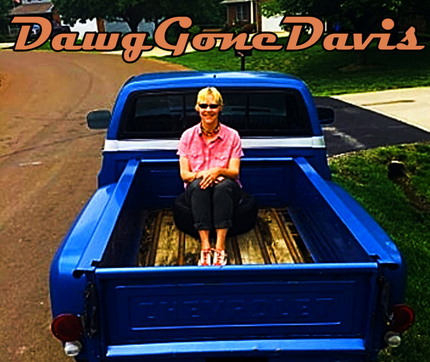
Classical Music (and the Oldies) Reeling and Feeling
Folks this is as real as it gets. Music is really comforting and we binge on it. I spent five hours driving to the Mark Twain National Forest area to visit family this past weekend. I was grieving my great friend, Chris J, who passed from COVID-19 in early April. I put in the Chicago Greatest Hits CD and BLASTED it, with the windows down for five hours. Maybe I should have been listening to Handel’s Messiah for even more comfort, too. But at that moment, my heart had to hear “(I’ve Been) Searchin’ So Long” in loud, binge fashion.
Another time, we walked around stunned for weeks. I had taken one of my nephews to a concert at the previous Sprint Center in KC, MO. I will never forget Michael and I looking at each other in disbelief with our jaws literally hung open. We had just been blown over and musically infused by Paul McCartney in concert. Paul played at least five or six unique instruments. That was "real music" that grabs one's chest, stops the breathing, creates goosebumps from head to toes and moves the booty – at least it did for us that night.
For me, trying to describe what is real music is interesting. I can honestly say I am running out of socks as the Eagles have knocked them off so many times during the years. I cried when Glenn Frey died. I cried when Tom Petty died. I had just seen Tom Petty and the Heartbreakers about two months prior in concert. I cried when Ronnie Van Zant died; I cried when David Bowie, Michael Jackson, Whitney Houston, Stevie Ray Vaughn, and even when Elvis died (even though I was a very small child.
I weep with chills when Josh Groban sings “O Holy Night” – and I must to listen to it over and over again, and when I hear “I Can See Clearly Now” by Johnny Nash. “Suspicious Minds” by Elvis stops time and I just bang my head. Thinking of Elton John playing “Tiny Dancer” in concert at the Sprint Center makes me kneel down and thank the Lord for voices, lyrics and the piano. And yes, Carole King truly does make the earth move!
Likewise, Bob Seger immortalized “Night Moves”; I believe a lot of new and old fans feel the song. And REO Speedwagon also makes me shed tears with “Roll with the Changes.”
Am I stuck only appreciating classic rock ‘n’ roll? No. I remember playing on the Oriental rug with my sister while my dad put on music by Chopin, Bach, Wagner, and Mozart. Then years later, Dad would dissect and decompose the master’s notes and change them so Mom could play the same music arranged for organ. Dang, I wish I had gotten Dad's abilities in music.
-Rebecca “DawgGoneDavis,” Rapper, Songwriter and Chart-Topping Artist
(www.dawggonedavis.bandcamp.com)
-Hellmut Wolf, Saxophonist, Producer, Manager of DawgGoneDavis
(hellmut@wolfentertainment.com.au)

Real music does exist because there are many musicians, songwriters, composers, singers and soloists making music every single day. The inclusion and coordination of all of these talented music makers is what makes what they do “music.” This process of making music is what defines music to me. A person who has studied their instrument to the skill level of being able to converse and create with others who have done the same is a creator of real music.
I find this process authentic, organic and very spiritual. The industry of music has become something different because it doesn’t require the authenticity of musicianship, only that the substitutes be profitable.
- Lamont Dozier, Jr., Independent Recording Artist

There is one common thread that I feel keeps the magic of music alive regardless of genre and age: its ability to mark time. I have grown up hearing that the thing that makes a song truly special is its ability to mark time in a person’s life. So to me, real music is anything that makes me wind back the clock and relive days gone by, for better or worse. Over the years as I’ve developed my lyrical style, I have made sure that I stay aware of this fact, and I believe this awareness is what makes GREYE’s music attainable and meaningful to such a wide variety of listeners. Not only do the songs mark time for me because they are largely based on events in my life, but they are also about themes so many people can relate to. With the mass-production of music that is occurring in the modern age, it can be easy for songs to come and go so quickly. I feel that the more a song can grasp a listener and take them on a journey to the past, the more “real” the music, and the richer the experience of listening.’
-Hannah Summer of Chart-Topping Daytona Beach FL Indie Band GREYE
Just before launching my artist career, I ran an open mic at coffee house in Oshkosh Wisconsin. Most of my regular accomplished performers were young adults between the ages of 18 and 24. I supplied instruments, gave tips, helped with songwriting, and eventually played out professionally with many of them in their bands.
What gave me the most enjoyment, besides helping them sound professional, was seeing the audience react to hearing a group of musicians who could sing and play well together. At that time this was ‘real music’ to me. Fairly simple in its creation, yet honest and performed from the heart. Judging by the positive reactions of the audiences which I witnessed while performing with these kids, this was also ‘real music’ to them.
When I became a recording artist, my take on what is ‘real music’ changed out of necessity to compete. Partly because I could see that most people view recorded music differently than live music. If I was to be a successful recording artist, I needed to accept this as a rule and adjust my songwriting to meet peoples' general expectations. That is, expectations regarding recorded music meeting the general public's criteria of being ‘real music’.
The most important part of being a successful songwriter is conveying an idea or a feeling honestly thru words and music. A common way consumers rate music is by if they like the singer's voice, then if they understand the lyric content and then determining if the lyric content is relevant to their lifestyle and identity. After that the rhythm, melody and rhymes of the lyric content are scrutinized. Because most artists today have home recording studios and the time to record descent backing tracks the quality of the music recordings themselves usually is last scrutinized.
This makes me focus on the lyric content when recording music. As I’ve improved this aspect of my recordings I’ve seen a positive impact of more radio plays, stations adds and fans. This means that there are both music consumers and radio station DJs who believe in a similar idea of what ‘real music’ is to them when in a recorded format. When I get back to live performing most likely my idea of what ‘real music’ is to me will change again. However, because my recorded music is building an audience with the help of radio, I’m hoping my live audience will be bigger than when I was open mic host. Until then, please keep enjoying and supporting real music as it is defined by you. The world may become a little better place because of it.
- Internationally Chart-Topping Recording Artist AV Super Sunshine




